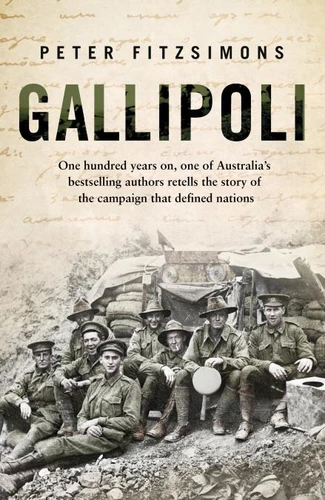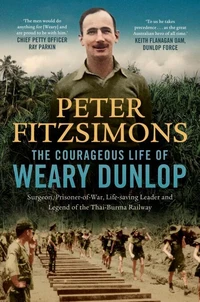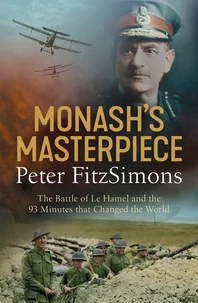Gallipoli
Par :Formats :
Disponible dans votre compte client Decitre ou Furet du Nord dès validation de votre commande. Le format ePub protégé est :
- Compatible avec une lecture sur My Vivlio (smartphone, tablette, ordinateur)
- Compatible avec une lecture sur liseuses Vivlio
- Pour les liseuses autres que Vivlio, vous devez utiliser le logiciel Adobe Digital Edition. Non compatible avec la lecture sur les liseuses Kindle, Remarkable et Sony
- Non compatible avec un achat hors France métropolitaine
 , qui est-ce ?
, qui est-ce ?Notre partenaire de plateforme de lecture numérique où vous retrouverez l'ensemble de vos ebooks gratuitement
Pour en savoir plus sur nos ebooks, consultez notre aide en ligne ici
- Nombre de pages848
- FormatePub
- ISBN978-1-4735-1077-7
- EAN9781473510777
- Date de parution15/01/2015
- Protection num.Adobe DRM
- Infos supplémentairesepub
- ÉditeurTransworld Digital
Résumé
On 25 April 1915, Allied forces landed on the Gallipoli Peninsula in present-day Turkey to secure the sea route between Britain and France in the west and Russia in the east. After eight months of terrible fighting, they would fail... To this day, Turkey regards the victory as a defining moment in its history, a heroic last stand in the defence of the Ottoman Empire. But, counter-intuitively, it would come to signify something perhaps even greater for the defeated allies, in particular the Australians and New Zealanders: the birth of their countries' sense of nationhood.
Now, in the year that marks its centenary, the Gallipoli campaign (commemorated each year on 25 April, Anzac Day), resonates with significance as the origin and symbol of Australian and New Zealand identity. As such, the facts of the campaign (which was minor when compared to the overall scale of the First World War: Australian deaths were less than a sixth of their losses on the Western Front) are often forgotten or obscured.
Now the celebrated journalist and author Peter FitzSimons, with his trademark vibrancy and expert melding of writing and research, recreates the disastrous campaign as experienced by those who endured it or perished in the attempt.
Now, in the year that marks its centenary, the Gallipoli campaign (commemorated each year on 25 April, Anzac Day), resonates with significance as the origin and symbol of Australian and New Zealand identity. As such, the facts of the campaign (which was minor when compared to the overall scale of the First World War: Australian deaths were less than a sixth of their losses on the Western Front) are often forgotten or obscured.
Now the celebrated journalist and author Peter FitzSimons, with his trademark vibrancy and expert melding of writing and research, recreates the disastrous campaign as experienced by those who endured it or perished in the attempt.
On 25 April 1915, Allied forces landed on the Gallipoli Peninsula in present-day Turkey to secure the sea route between Britain and France in the west and Russia in the east. After eight months of terrible fighting, they would fail... To this day, Turkey regards the victory as a defining moment in its history, a heroic last stand in the defence of the Ottoman Empire. But, counter-intuitively, it would come to signify something perhaps even greater for the defeated allies, in particular the Australians and New Zealanders: the birth of their countries' sense of nationhood.
Now, in the year that marks its centenary, the Gallipoli campaign (commemorated each year on 25 April, Anzac Day), resonates with significance as the origin and symbol of Australian and New Zealand identity. As such, the facts of the campaign (which was minor when compared to the overall scale of the First World War: Australian deaths were less than a sixth of their losses on the Western Front) are often forgotten or obscured.
Now the celebrated journalist and author Peter FitzSimons, with his trademark vibrancy and expert melding of writing and research, recreates the disastrous campaign as experienced by those who endured it or perished in the attempt.
Now, in the year that marks its centenary, the Gallipoli campaign (commemorated each year on 25 April, Anzac Day), resonates with significance as the origin and symbol of Australian and New Zealand identity. As such, the facts of the campaign (which was minor when compared to the overall scale of the First World War: Australian deaths were less than a sixth of their losses on the Western Front) are often forgotten or obscured.
Now the celebrated journalist and author Peter FitzSimons, with his trademark vibrancy and expert melding of writing and research, recreates the disastrous campaign as experienced by those who endured it or perished in the attempt.

















